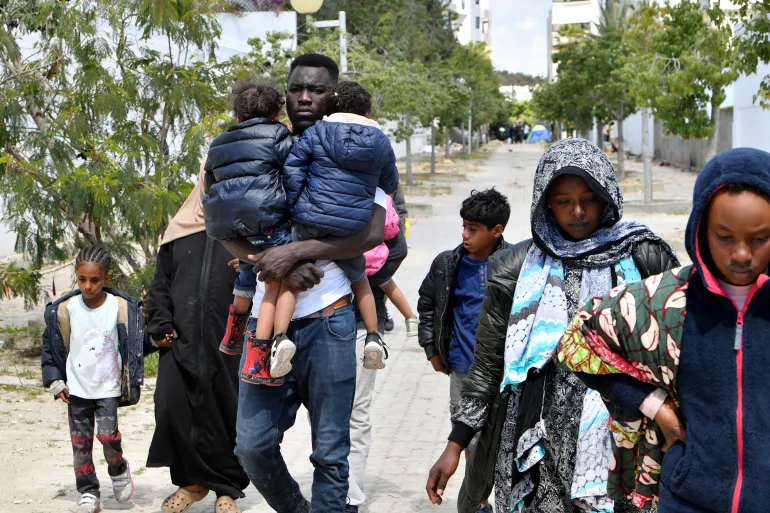The United Nations has issued a serious warning to Tunisia, raising alarm over increasing racist rhetoric, forced evictions, and mass deportations of Sub-Saharan African migrants and refugees. According to a letter obtained by Al-Quds Al-Arabi, the UN Committee on the Elimination of Racial Discrimination strongly condemned the North African country’s recent treatment of migrants.
The letter, signed by Committee Chair Michael Balcerzak and addressed to Tunisia’s UN Representative in Geneva, Sabri Bachtobji, highlights rising hate speech in media and on social platforms. It also criticizes Tunisian politicians, including members of parliament, for spreading harmful claims—such as the idea that African migrants’ birth rates could shift Tunisia’s demographic balance.
Why is the UN concerned about Tunisia’s actions?
The UN is worried about widespread racism and the mistreatment of African migrants in Tunisia. From violent deportations to discriminatory remarks by officials, these actions violate international human rights laws. The UN is now urging Tunisia to stop these practices, protect migrants, and punish those responsible for abuse.
In one disturbing example, a female MP suggested curbing birth rates among African migrant mothers, falsely claiming they were “three times more fertile than the global average.” These statements have fueled anti-migrant sentiment across the country.
The UN also reported that between June 2023 and November 2024, thousands of migrants were expelled to Libya and Algeria, often without due process or alternative shelter. A particularly harsh incident occurred in March 2024, when nearly 7,000 people were evicted from a camp in Sfax. Many were left homeless, and some were arrested.
Another major concern is a draft law on mass migrant expulsions that was circulated on social media by a Tunisian MP, bypassing official parliamentary procedures and silencing public input.
According to the UN Committee, these actions breach several parts of the International Convention on the Elimination of All Forms of Racial Discrimination, especially in regard to migrants’ safety and dignity.
Adding to the tension, Tunisian authorities have cracked down on NGOs helping undocumented migrants, accusing them of illegal activity. Human rights advocates warn this is a dangerous step toward criminalizing humanitarian support.
The UN is now calling on Tunisia to:
- Protect migrant rights
- Investigate human rights abuses
- Hold those responsible accountable
- Stop collective deportations
- Offer compensation to victims of abuse
This warning comes amid public unrest in Tunisia over secretive migration agreements between President Kais Saied and the European Union—deals many fear could further endanger vulnerable migrants.

